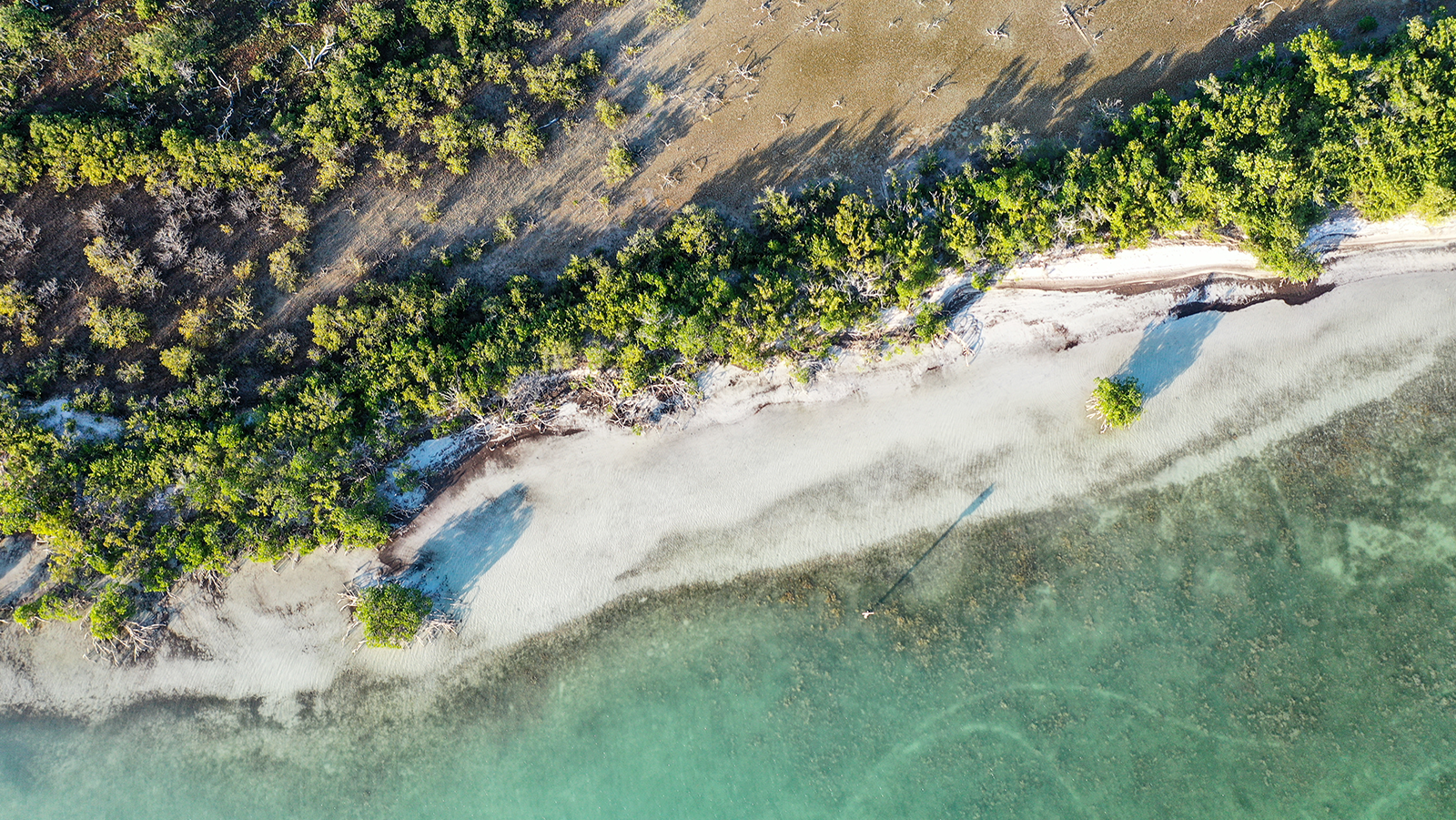Today, NOAA announced $4.2 million in funding awarded to a collaborative project entitled the Florida Regional Ecosystems Stressors Collaborative Assessment (FRESCA), co-led by NOAA’s Atlantic Oceanographic & Meteorological Laboratory (AOML) and the University of Miami, and involving seven different academic and research institutions.
In the wake of a mass coral bleaching event brought on by the marine heatwave this summer across South Florida, the Gulf of America, and the greater Caribbean, our scientists are leading an unprecedented effort to tackle the vast threats that marine ecosystems face. The goal of FRESCA is to assess current and future impacts of five key stressors under climate change: ocean acidification, ocean warming, hypoxia, harmful algal blooms, and eutrophication.
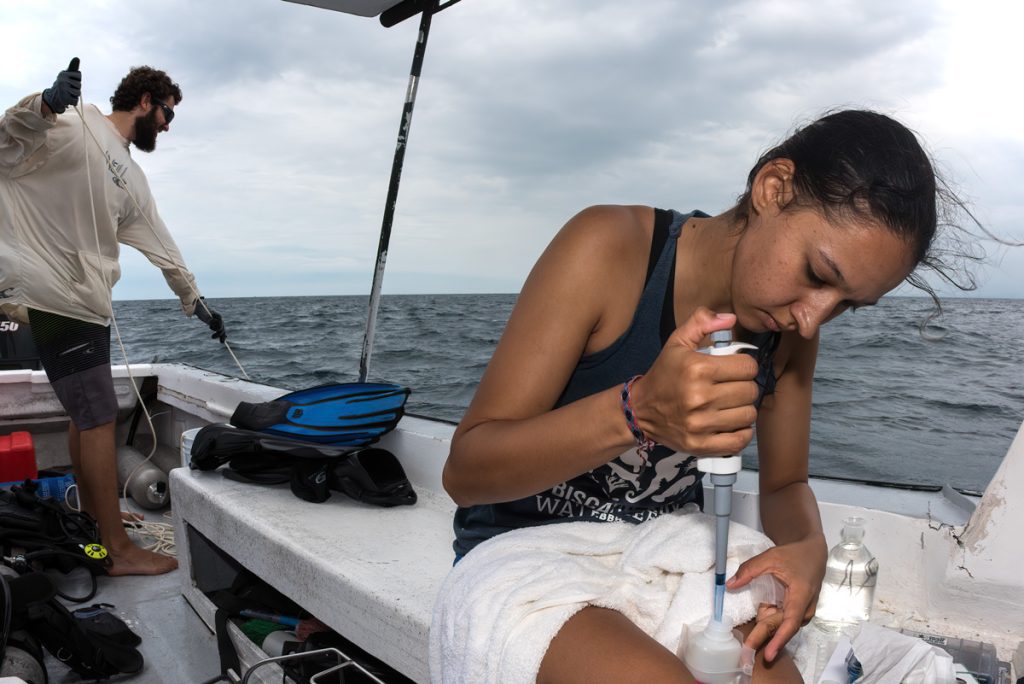
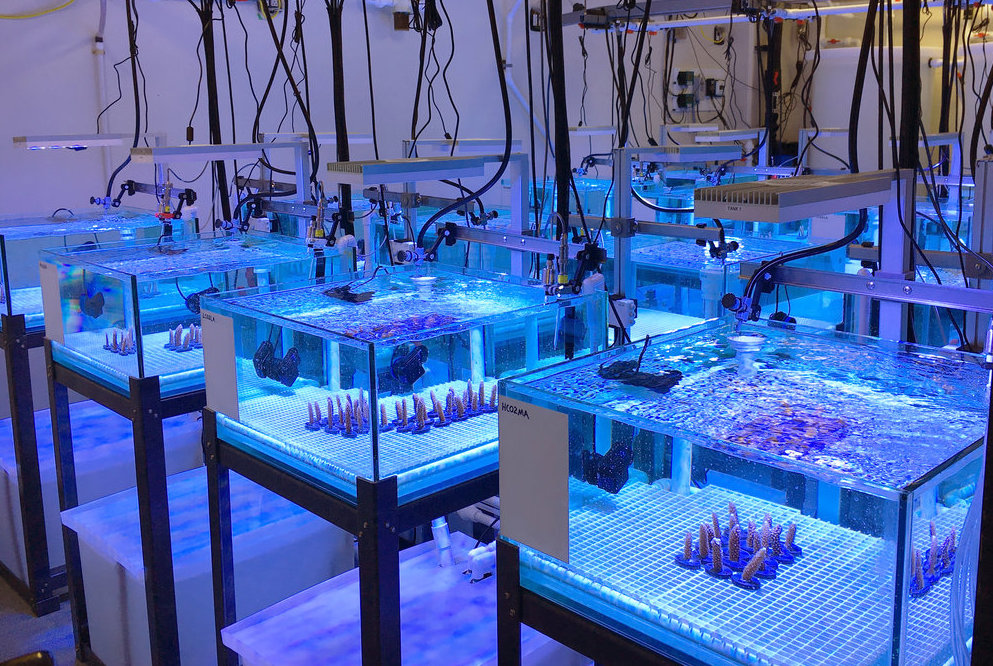
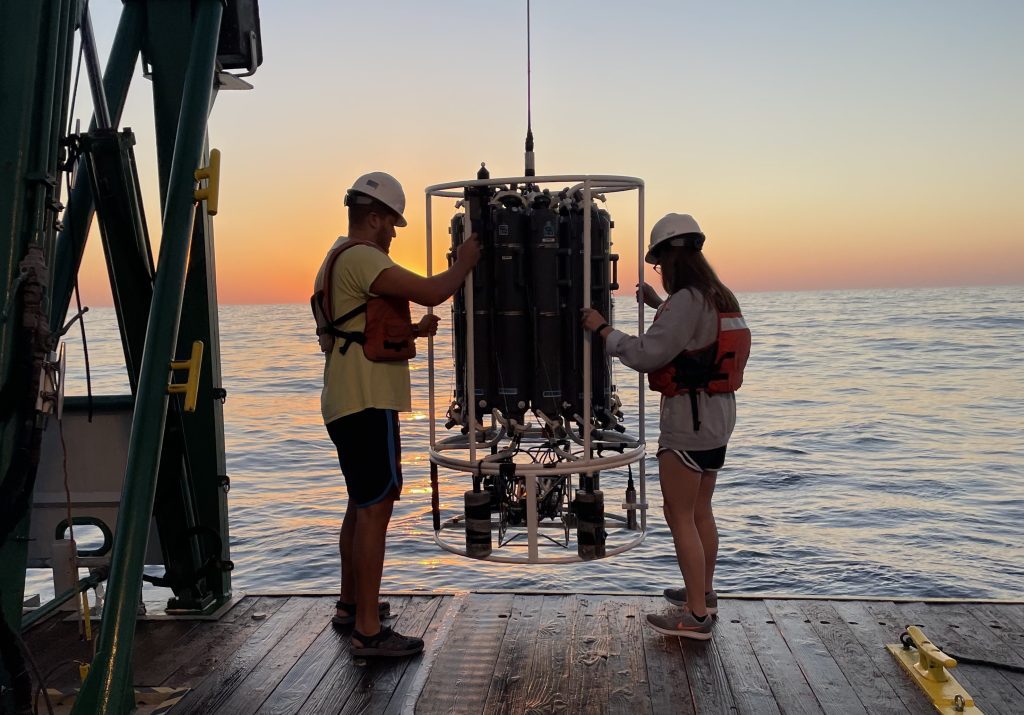
Preparing for the future of climate change requires understanding the breadth of environmental stressors attributed to the warming of the Earth and rising global carbon emissions, but these are not isolated issues. From marine heatwaves and greater ocean warming to acidification and hypoxia, these stressors are exacerbated by their counterparts with varying intensities in different regions and across complex, yet interconnected marine ecosystems.
Over four years, the collaboration of multiple institutions will aim to determine the current distribution and impact of these stressors across the southwest Florida Shelf and the Florida Keys National Marine Sanctuary (FKNMS), respectively. Through ecosystem modeling and experimentation, researchers will identify thresholds of key habitat-altering species from corals to pelagic fish in response to greater temperatures, ocean acidification, hypoxia, and nutrient levels.
“A key goal of the multi-stressor project is to show how climate change will impact the seven Mission: Iconic Reefs sites and how changing water quality parameters associated with the Comprehensive Everglades Restoration Plan may influence them. The ability to target resiliency will allow scientists to evaluate different coral restoration strategies to help ensure habitat protection under various climate scenarios.”
Ian Enochs, PhD, project lead and head of the Coral Program at NOAA’s Atlantic Oceanographic and Meteorological Laboratory in Miami, FL
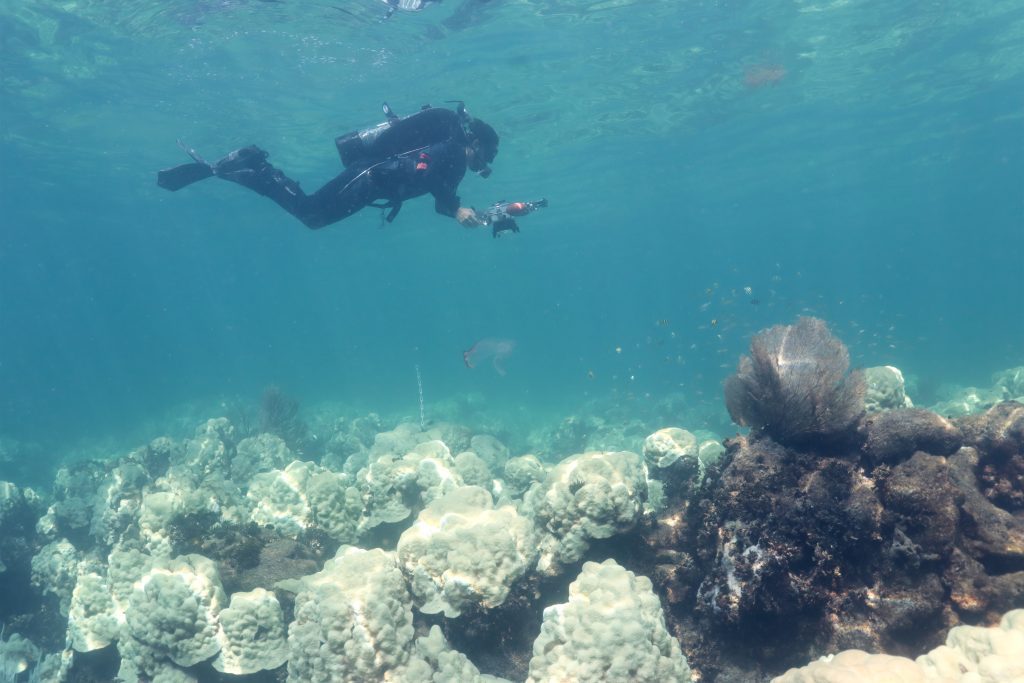
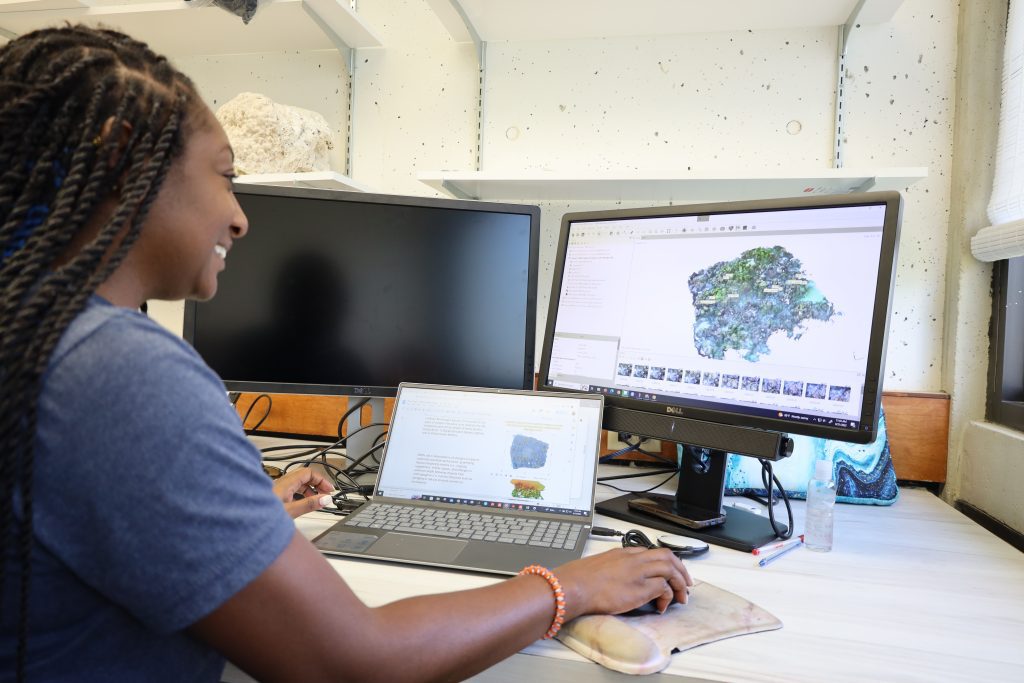
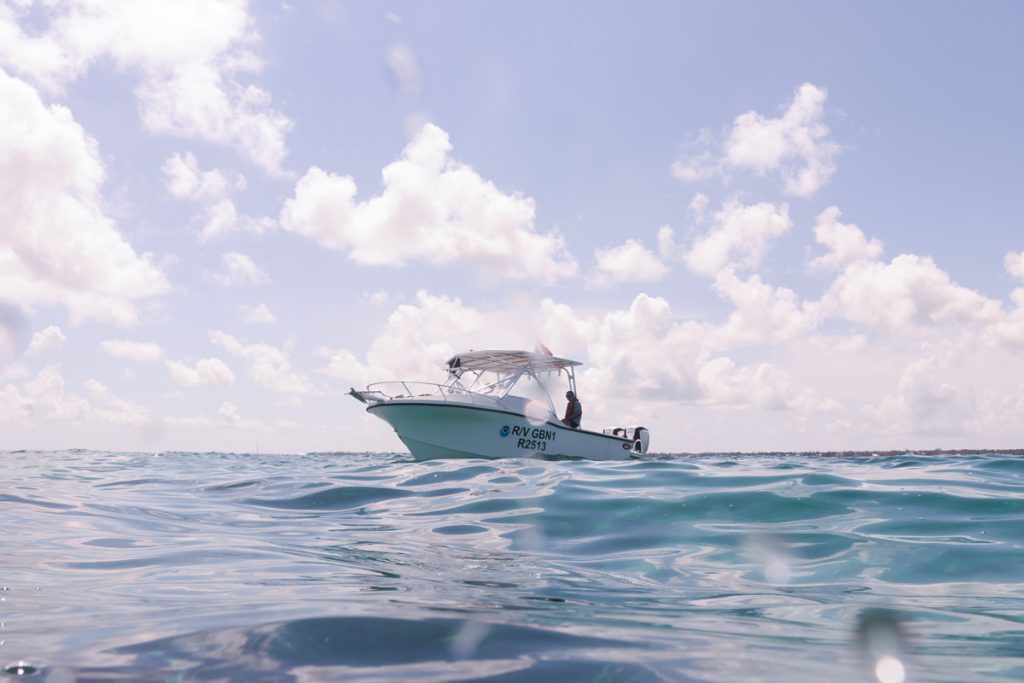
This announcement marks the beginning of a crucial effort among experts across vastly different fields to understand the holistic effects of climate change and unlock key insights to inform ongoing and future restoration strategies. The launch of FRESCA comes at a critical juncture as it will provide essential information for management and restoration of South Florida’s marine ecosystems through the Comprehensive Everglades Restoration Plan (CERP) and management of the Florida Keys National Marine Sanctuary, including the Mission: Iconic Reefs restoration of seven ecologically and culturally significant reefs within the Sanctuary.
This work is funded by NOAA’s National Centers for Coastal Ocean Science Competitive Research Program, Climate Program Office, Ocean Acidification Program, and the U.S. Integrated Ocean Observing System, in collaboration with the Office of National Marine Sanctuaries through the Notice of Federal Funding Opportunity “Understanding multi-stressor impacts on marine ecosystems under climate change.” It is led by Ian Enochs at NOAA’s Atlantic Oceanographic and Meteorological Laboratory and Ana Palacio at the University of Miami Rosenstiel School, and consists of a team of nine scientists at seven institutions (NOAA’s Atlantic Oceanographic and Meteorological Laboratory, University of Miami’s Cooperative Institute for Marine and Atmospheric Studies, Fish and Wildlife Research Institute, Mississippi State University’s Northern Gulf Institute, Southeast Coastal Ocean Observing Regional Association, University of South Florida, and Virginia Institute of Marine Science).
To learn more about this project, please visit:
NOAA awards $4.2 million for multi-stressor research on South Florida’s coastal ecosystems (NOAA’s National Centers for Coastal Ocean Science)
Ecosystems Under Stress: Rehttps://coastalscience.noaa.gov/project/florida-regional-ecosystem-stressors-collaborative-assessment-fresca/storing South Florida’s Everglades and Coral Reefs (NOAA’s Office of National Marine Sanctuaries)
Florida Regional Ecosystem Stressors Collaborative Assessment (FRESCA)
